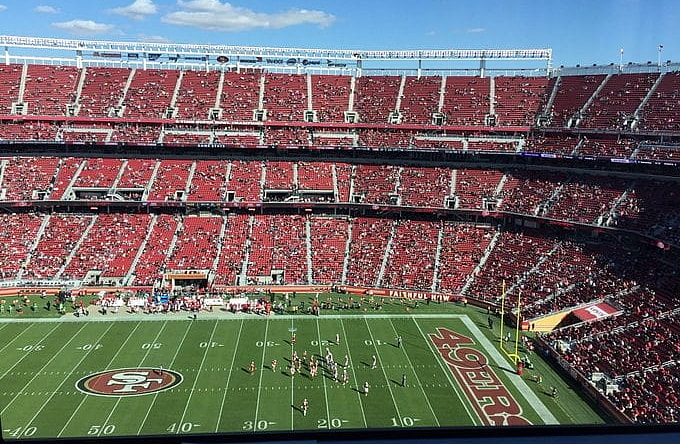
In what’s become an all-too-familiar theme of the 2017 season, the NFL’s Week 10 ratings took a drop when compared to last year.
Citing a SportsBusiness Daily report (subscription required), Pro Football Talk’s Mike Florio noted the significance of this happening in Week 10.
“Via SportsBusiness Daily, the game generated a 6.2-percent rating, down 21 percent from last year’s Week 10 game between the Bengals and the Giants,” Florio reported. “It’s another ominous sign for an embattled league, now that 2017 games are being compared to 2016 games that came after the election, when ratings increased. For all Week 10 windows, ratings dropped in comparison to 2016, with Sunday Night Football on NBC down 19.6 percent and the nationally-televised Cowboys-Falcons game down 18 percent for FOX.”
Some of this can be attributed to the games.
For example, 2016’s Sunday Night Football game matched up the New England Patriots and Seattle Seahawks. That game not only matched up two teams bound for the playoffs, but was also a rematch of an exciting Super Bowl from (at the time) less than two years before.
By contrast, 2017’s game had the Patriots against the Denver Broncos. This was once a great rivalry. But while New England is still strong, Denver does not appear to be a playoff team. So, it’s certainly possible that people elected not to tune in to the likely blowout. Quite frankly, they didn’t miss much.
But even if it’s explainable, the across-the-board drop is truly problematic. It is absolutely a bad sign for the league.
The NFL’s ratings have been consistently worse than 2016’s. That’s especially problematic since 2016’s were down, but increased after the election. If 2017’s numbers are unfavorable to 2016’s pre-election figures, it doesn’t exactly bode well for any post-election comparisons.
There are plenty of theories floating around about what’s causing the dip. Since we’re talking about millions of people, it’s likely a combination of a number of things. Certainly, it’s something that the NFL needs to figure out sooner rather than later.